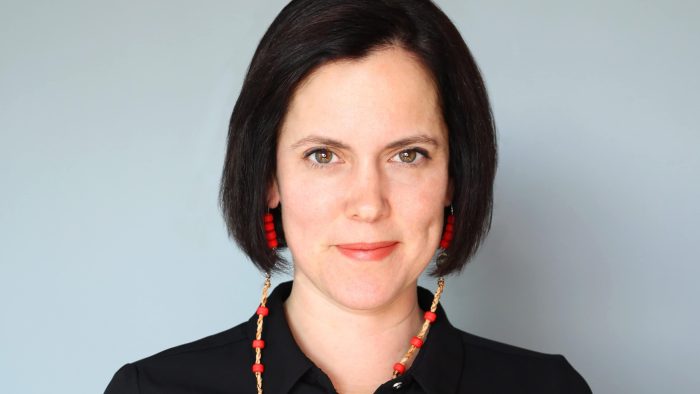Creators Who Inspire: Meet Sasha Boersma
Rooster really is a dream project.
That’s how Sasha Boersma, the co-founder of Toronto’s Sticky Brain Studios, describes the birth of their newest videogame.

“One of our team members, Connie Choi, was out with friends and family for Chinese New Year and came home and took a nap. She had this dream about a rooster hanging out with other zodiac animals,” says Boersma.
“So, she brought it to me and Ted Brunt, my business partner, and said ‘I want to make this game, can you help make it happen?’ We were like, yes, there's something cool here.”
With CMF funding, the studio used that kernel of an idea to create a narrative puzzle adventure game.
“It’s a heartfelt game that celebrates ancient Chinese culture,” explains Boersma. “It starts with the Chinese zodiac animals having a New Year's party, but Rooster's not being a great guest. The other animals have enough of his behavior, so Dragon sends Rooster back in time to learn how to be a more thoughtful and caring Rooster. There are 12 levels in the game, including a cooking level, hidden object level, and a paper crafting level.”

Rooster is also a dream project thanks to the team that created it.
“We’re probably one of the most diverse game studios in Canada,” says Boersma. “It’s gender parity owned, 50-50 between me and Ted Brunt. The production team is mostly women, and the company is led by people with disabilities like myself. Nearly half of our team have various disabilities. Many have various 2SLGBTQIA+ identities and the creative leads of Rooster are a mix of East Asian diaspora identities, which is also what makes the story and the game authentic.”
Boersma identifies as autistic, and when she isn’t leading Sticky Brain Studios you can find her active as a board member to the Disability Screen Office (DSO). Her commitment to a diverse workplace doesn’t end with simply hiring but continues through her style of leadership.
“Ted and I really believe in supporting the people who work with us. And so nearly everyone on Rooster is new to their role and their capacity in some way. We just felt that with the industry being as precarious as it is, it's important to us to ensure that our team comes out of the game with new skills and knowledge that they can take with them wherever they go in their career.”
Rooster represents a huge step forward for Sticky Brain Studios, which is a small outfit with big ambitions.
“When we went to the Game Developers Conference this year to do an industry launch, a few Chinese publishers were just stunned to see this game was made in Canada. They were like, ‘I'm sorry, made in Canada, but this is a Chinese game!’ It’s one of the opportunities we have in Canada in the cultural space. We are such a diverse country, if we can get more of these stories and experiences out there, it opens up international opportunities.”



